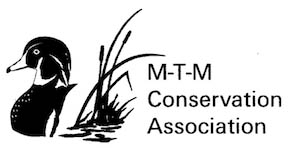Associates

Ducks Unlimited Canada (DUC) has collaborated for many years with the Ministry of Natural Resources and Forestry and the dedicated volunteers of the MTM Conservation Association to restore vital wetland habitat in the South Georgian Bay region.
This landscape is a conservation priority because waterfowl, shorebirds and landbirds rely on these habitats. Birds rest and feed in the forests, wetlands and grasslands during spring and fall migration, and raise the next generation of birds during summer months.
Restored habitats in the region include the large wetlands at Tiny Marsh (1979), Matchedash Bay (1991) and Marl Lake (1992). With water-control infrastructure installed at the three sites to restore wetland functions, DUC manages the wetland water levels to mimic the natural dynamics that rejuvenate native wetland plants.
Restored habitat reveals nature’s resilience
Today, these three sites are thriving with healthy wetlands and upland forest and grassland habitats. Stands of cattails and bulrushes are interspersed with the open-water pools and channels preferred by many marsh-nesting birds. The habitat also supports other wildlife including fish, frogs, snakes and turtles.
Did you know that turtle populations are declining in Ontario? All eight native turtle species are found on the list of Species at Risk in Ontario. Like all wetland species, turtles are an important part of ecosystem health.
DUC works with MTM Conservation Association and staff from the Ministry of Natural Resources and Forestry to carry out wetland management plans for the sites, using techniques such as water-level “drawdowns” to revive dormant seeds in the sediment. Over time, the partners have worked together to maintain and rebuild water management structures including earth berms, spillways and water-control structures which help stabilize and control water levels to keep these habitats thriving.
DUC is the national leader in wetland conservation with more than 6.4 million acres under its care across Canada. DUC and its partners in the Eastern Habitat Joint Venture have invested more than $2.5 million in these vibrant wetland habitats south-east of Georgian Bay.
Wetlands are hard-working ecosystems that do so much for us:
-Clean water
-Flood mitigation
-Trails and waterways
-Habitat for species at risk
-Healthy watersheds
-Carbon capture
